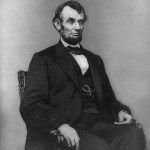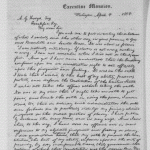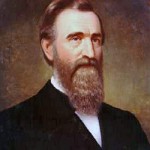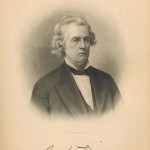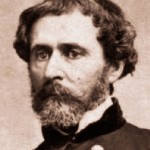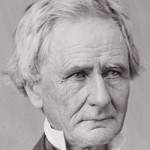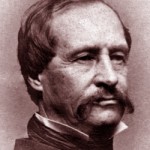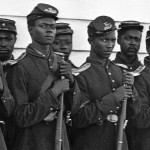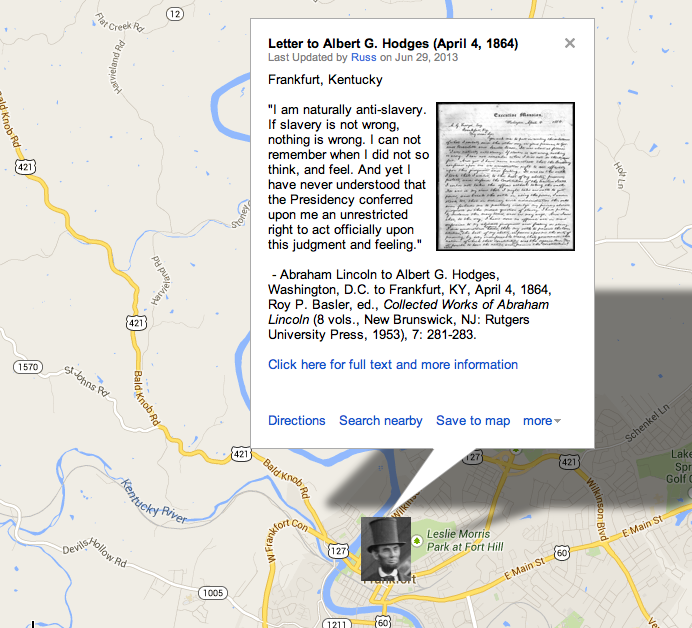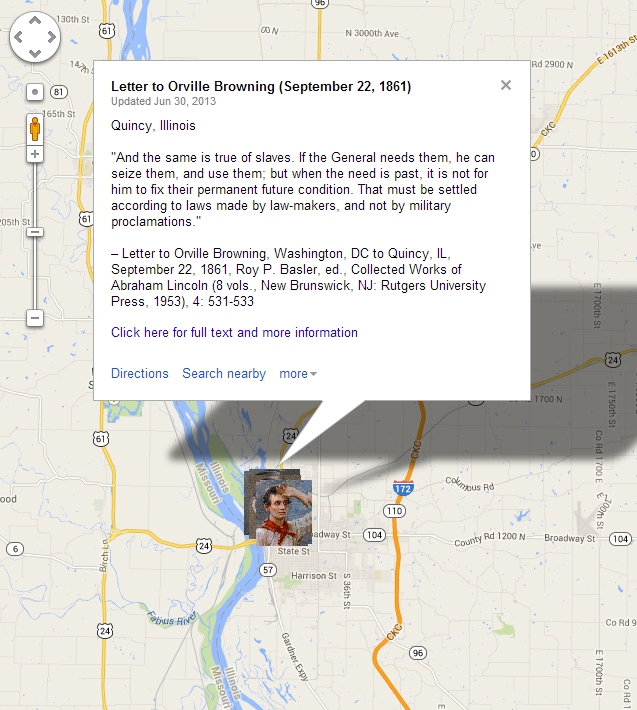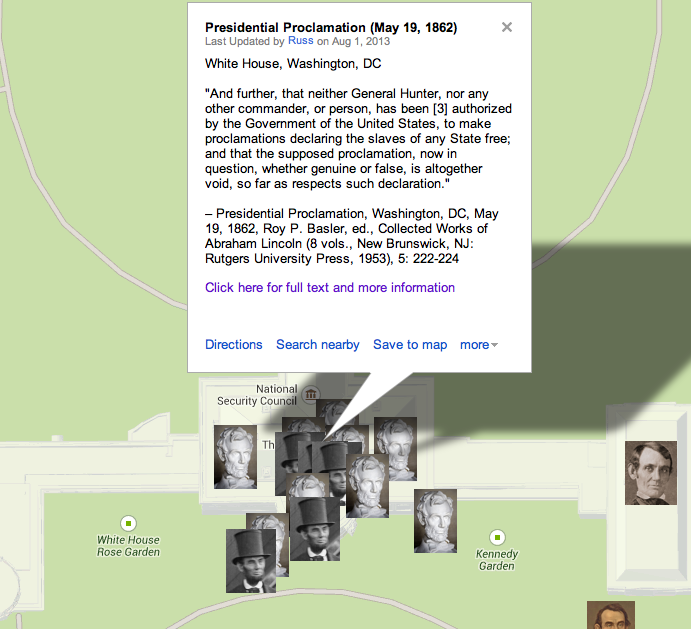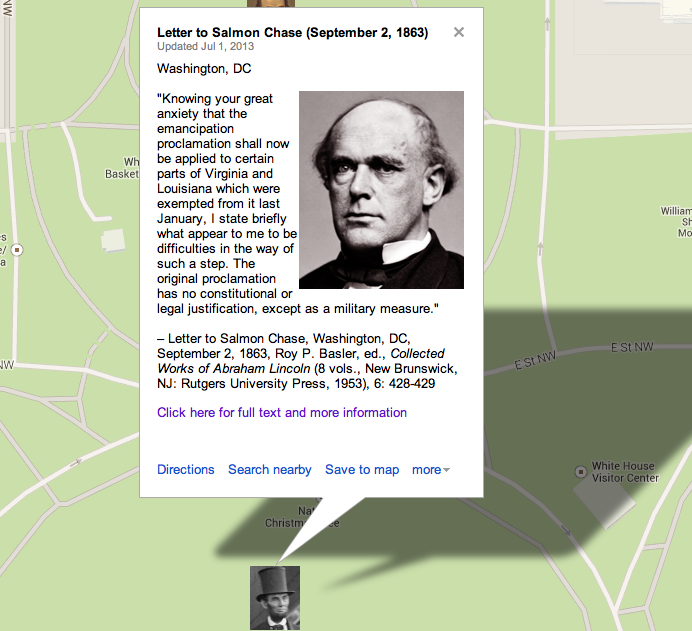Contributing Editors for this page include Leah Miller
Ranking
#7 on the list of 150 Most Teachable Lincoln Documents
Annotated Transcript
“You asked me to put in writing….”
Audio Version
On This Date
HD Daily Report, April 4, 1864
Image Gallery
- Lincoln in 1864
- Letter to Hodges
- Governor Thomas Bramlette
- Senator Archibald Dixon
- General John C. Frémont
- Simon Cameron
- General David Hunter
- African American Infantrymen
Close Readings
Podcast close reading by Leah Miller (via Soundcloud)
Custom Map
Other Primary Sources
Albert Hodges to Abraham Lincoln, April 22, 1864
From the Diary of Orville Hickman Browning, April 3, 1864
New York Daily Tribune, “Lincoln to Hodges,” April 29, 1864
John Mackenzie to Abraham Lincoln, April 28, 1864
Benjamin B. French to Abraham Lincoln, May 5, 1864
How Historians Interpret
“In the Civil War, the power to permanently free slaves authorized by the law of war was, as Lincoln recognized in the Hodges letter, augmented by the terms of the United States Constitution. The Constitution gives the president the duty and power to preserve, protect, and defend the Constitution. The war was being waged to preserve the Constitution. By the time the Emancipation Proclamation was issued, bloody defeats and victories and war weariness had built a case for African-American troops and other steps to weaken the enemy and strengthen the Union. Frémont, Cameron, and Hunter had unwittingly given credibility to Lincoln’s decision to emancipate the slaves by proving that he had refused to take that step until the need was obvious and imperative. The preserve, protect, and defend power was specific, constitutionally conferred, seemingly plenary, and clearly applicable. It created power that embodied, but was not limited to, power arising under the uncertain parameters of the law of war. The grave peril to the Union conferred power akin to the acknowledged power of government to destroy property that imperils the public good, such as an unsafe house or structures or foliage that will kindle or spread a wildfire. Under the circumstances, there was solid legal ground to free the slaves, by decree or otherwise.”
“Lincoln’s fatalism seemed to his friends to weigh him down in gloom rather than buoy him up in hope. Lincoln’s private predictions of greatness were accompanied by confessions of powerlessness and passivity. In 1864, anxious over his prospects for reelection, he claimed no feeling of having ‘controlled events, but confess plainly that events have controlled me.'”
“Reading the Bible reinforced Lincoln’s long-held belief in the doctrine of necessity, a belief that admirably fitted the needs of his essentially passive personality. The idea that the actions of any individual were predetermined and shaped by the unknowable wishes of some Higher Power was not a new one for him, but with the burden of a never-ending war weighing even more heavily on his shoulders, he reverted to it more and more frequently . . . Again and again he reverted to the idea that behind all the struggles and losses of the war a Divine purpose was at work . . . This comforting doctrine allowed the President to live with himself by shifting some of the responsibility for all the suffering.”
—David Herbert Donald, Lincoln (New York: Simon & Schuster, 1995), 514-515
“The secret of Lincoln’s actions was that he had an excellent sense of timing. Using the radicals to spur him on and yielding to the conservatives when necessary, he moved ahead gradually, but ahead nonetheless. And to do so, he needed the radicals’ exhortations. That he welcomed these was not always clear at the time, but there is very little doubt that he was always, and had always been, a convinced opponent of the institution of slavery. If the radicals’ main aim during the Civil War was the extirpation of the ‘peculiar institution,’ Lincoln, too, believed, as he wrote to Albert G. Hodges in 1864, that ‘If slavery is not wrong, nothing is wrong.’ Thus the difference between him and the radicals was not as large as it appeared at first sight.”
Further Reading
Searchable Text
A. G. Hodges, Esq Executive Mansion,
Frankfort, Ky. Washington, April 4, 1864.
My dear Sir: You ask me to put in writing the substance of what I verbally said the other day, in your presence, to Governor Bramlette and Senator Dixon. It was about as follows:
“I am naturally anti-slavery. If slavery is not wrong, nothing is wrong. I can not remember when I did not so think, and feel. And yet I have never understood that the Presidency conferred upon me an unrestricted right to act officially upon this judgment and feeling. It was in the oath I took that I would, to the best of my ability, preserve, protect, and defend the Constitution of the United States. I could not take the office without taking the oath. Nor was it my view that I might take an oath to get power, and break the oath in using the power. I understood, too, that in ordinary civil administration this oath even forbade me to practically indulge my primary abstract judgment on the moral question of slavery. I had publicly declared this many times, and in many ways. And I aver that, to this day, I have done no official act in mere deference to my abstract judgment and feeling on slavery. I did understand however, that my oath to preserve the constitution to the best of my ability, imposed upon me the duty of preserving, by every indispensable means, that government—that nation—of which that constitution was the organic law. Was it possible to lose the nation, and yet preserve the constitution? By general law life and limb must be protected; yet often a limb must be amputated to save a life; but a life is never wisely given to save a limb. I felt that measures, otherwise unconstitutional, might become lawful, by becoming indispensable to the preservation of the constitution, through the preservation of the nation. Right or wrong, I assumed this ground, and now avow it. I could not feel that, to the best of my ability, I had even tried to preserve the constitution, if, to save slavery, or any minor matter, I should permit the wreck of government, country, and Constitution all together. When, early in the war, Gen. Fremont attempted military emancipation, I forbade it, because I did not then think it an indispensable necessity. When a little later, Gen. Cameron, then Secretary of War, suggested the arming of the blacks, I objected, because I did not yet think it an indispensable necessity. When, still later, Gen. Hunter attempted military emancipation, I again forbade it, because I did not yet think the indispensable necessity had come. When, in March, and May, and July 1862 I made earnest, and successive appeals to the border states to favor compensated emancipation, I believed the indispensable necessity for military emancipation, and arming the blacks would come, unless averted by that measure. They declined the proposition; and I was, in my best judgment, driven to the alternative of either surrendering the Union, and with it, the Constitution, or of laying strong hand upon the colored element. I chose the latter. In choosing it, I hoped for greater gain than loss; but of this, I was not entirely confident. More than a year of trial now shows no loss by it in our foreign relations, none in our home popular sentiment, none in our white military force,—no loss by it any how or any ]where. On the contrary, it shows a gain of quite a hundred and thirty thousand soldiers, seamen, and laborers. These are palpable facts, about which, as facts, there can be no cavilling. We have the men; and we could not have had them without the measure.
[“]And now let any Union man who complains of the measure, test himself by writing down in one line that he is for subduing the rebellion by force of arms; and in the next, that he is for taking these hundred and thirty thousand men from the Union side, and placing them where they would be but for the measure he condemns. If he can not face his case so stated, it is only because he can not face the truth.[”]
I add a word which was not in the verbal conversation. In telling this tale I attempt no compliment to my own sagacity. I claim not to have controlled events, but confess plainly that events have controlled me. Now, at the end of three years struggle the nation’s condition is not what either party, or any man devised, or expected. God alone can claim it. Whither it is tending seems plain. If God now wills the removal of a great wrong, and wills also that we of the North as well as you of the South, shall pay fairly for our complicity in that wrong, impartial history will find therein new cause to attest and revere the justice and goodness of God. Yours truly
A. LINCOLN

